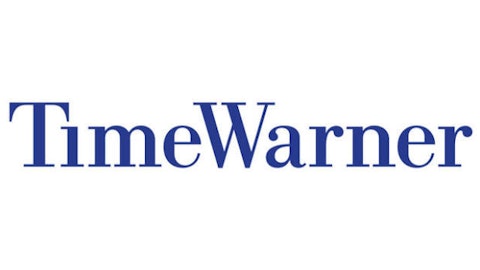I never quite understood the appeal of writing fan fiction, in which passionate writers spent copious amounts of time writing derivative works of existing fiction, such as Star Trek. I used to simply consider it a geeky niche sub-genre, since fan fiction could never be published due to copyright issues, and could never reach much farther than a limited circle of friends, family members and Internet visitors. In short, I thought it was simply a creative writing exercise in daydreaming.
Yet lo and behold, I was wrong. A recent deal inked between Amazon.com, Inc. (NASDAQ:AMZN) and Time Warner Cable Inc (NYSE:TWX)’s Alloy Entertainment shows that not only can fan fiction be legally published, but it can also be profitable.
Paid fan fiction
Through the new partnership with Alloy Entertainment, which publishes tie-in novels based on Warner Bros.’ television shows, Amazon.com, Inc. (NASDAQ:AMZN) writers can now write, self-publish and sell fan fiction stories based on Gossip Girl, Pretty Little Liars and Vampire Diaries. Writers who write stories that are between 5,000 to 10,000 words will earn 20% of the revenue, while stories that exceed 10,000 words can earn 35%. The rest of the revenue is split between Amazon and Alloy Entertainment. By comparison, an author who self-publishes an original Amazon book in the Kindle Store normally earns a 70% cut.

Alloy Entertainment is part of Time Warner Cable Inc (NYSE:TWX)’s Warner Bros. Film and TV segment, which posted a year-on-year top line decline of 5.0% last quarter. Increased sales of its fan fiction could boost the segment’s top line as well as pique viewer interest in its associated CW television series, which are 50% co-owned by CBS Corporation (NYSE:CBS).
A brave new world
Amazon.com, Inc. (NASDAQ:AMZN)’s new fan fiction business marks the birth of Kindle Worlds, which aims to grow into a sprawling universe of fan fiction, similar to Star Wars’ Expanded Universe. If Amazon can partner up with some other major companies, such as Scholastic Corp (NASDAQ:SCHL), Hachette Livre, or The Walt Disney Company (NYSE:DIS), Kindle Worlds could grow rapidly. Scholastic owns the Harry Potter and The Hunger Games franchises, Hachette Livre owns Twilight, while Disney owns Star Wars. Partnering with Amazon would be mutually beneficial for these publishers and parent companies, since Kindle Worlds could help franchises stay fresh and relevant in the absence of official releases.
For example, last quarter Scholastic Corp (NASDAQ:SCHL) was unable to offer a popular new franchise that could live up to Harry Potter and The Hunger Games, which have both concluded. As a result, Scholastic reported a third quarter loss of $0.63 per share while revenue tumbled 19%. If Scholastic signs with Amazon.com, Inc. (NASDAQ:AMZN), however, independent writers could contribute to the continuing adventures of Harry Potter and Katniss Everdeen without the express consent of J.K. Rowling or Suzanne Collins, respectively. Of course, there may be objections from the original authors and the issue of quality control, but high-quality fan fiction could help these franchises continue growing.
The social aspect
By allowing aspiring writers to write and self-publish fan fiction, Amazon.com, Inc. (NASDAQ:AMZN) is implementing a business plan that somewhat resembles the content-creation model of social networks. For example, Facebook Inc (NASDAQ:FB)’s business model is completely driven by its users. Its members create and share content in a self-sustaining ecosystem that the company sprinkles with revenue-generating advertisements.
With its self-publishing division, Amazon.com, Inc. (NASDAQ:AMZN) is doing the same thing, since it doesn’t have to quarrel with publishers who believe that e-books are unfairly priced. There is no physical inventory of books and no real investment risk, only content creation by users who might earn a few dollars from something that they would otherwise have done for free. Moreover, Amazon doesn’t need each book to sell thousands of copies for this business model to be profitable; it simply needs a lot of contributors who sell a handful of books each.
Kindle Worlds would also become a very competitive universe, in which fan fiction writers will compete with each other to tell the best stories using shared characters and settings. If Kindle Worlds can continue growing, then I believe that it could become as self-sustaining as Facebook, since it is completely fueled by voluntary content creators.
The Foolish bottom line
In retrospect, Amazon’s move to monetize fan fiction was incredibly observant and clever. Bezos realized that there were millions of people on the Internet willing to write fan fiction pieces for free, and then offered them an incentive to sell them on Amazon by partnering up with the franchise owners.
Partnering with Amazon.com, Inc. (NASDAQ:AMZN) in its fan fiction program would not only help media companies, which are looking for ways to promote their television shows and movies, but it would also help laggard book publishers such as Scholastic Corp (NASDAQ:SCHL), which need new ways to profit from concluded franchises. In other words, Amazon is casting a win-win halo effect on all parties involved, which could grow exponentially with the right support.
Leo Sun has no position in any stocks mentioned. The Motley Fool recommends Amazon.com. The Motley Fool owns shares of Amazon.com.
The article Inside Amazon’s Brave New World of Fan Fiction originally appeared on Fool.com.
Copyright © 1995 – 2013 The Motley Fool, LLC. All rights reserved. The Motley Fool has a disclosure policy.

